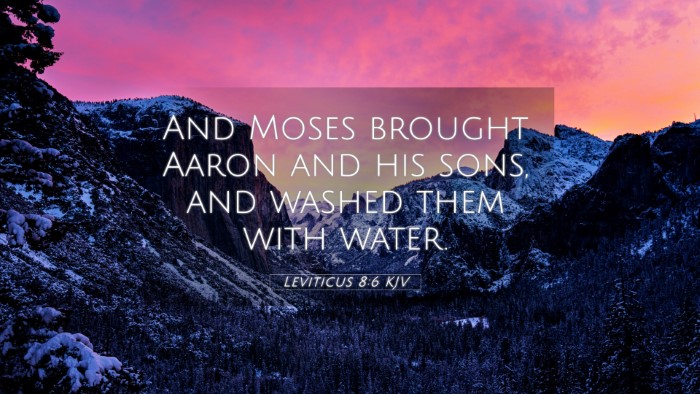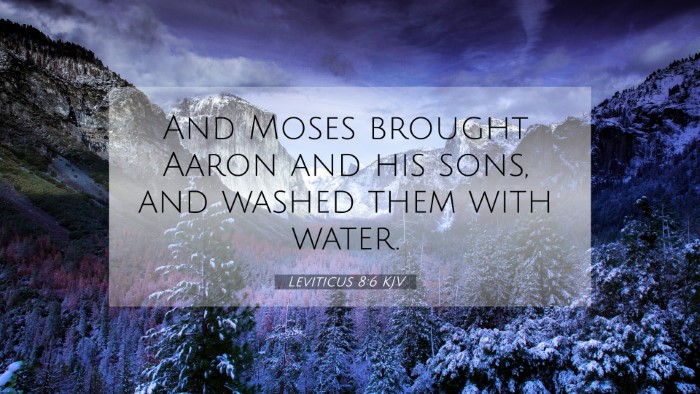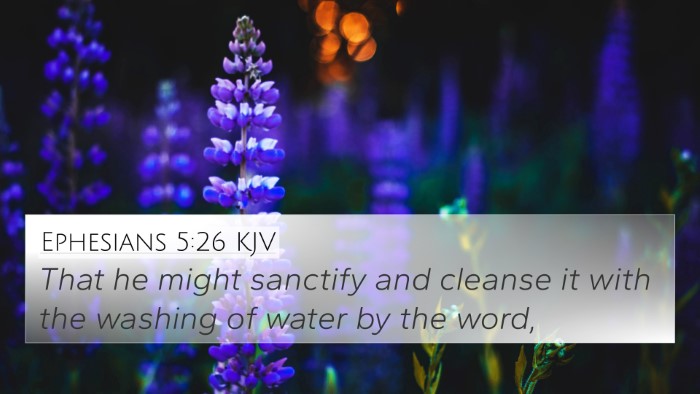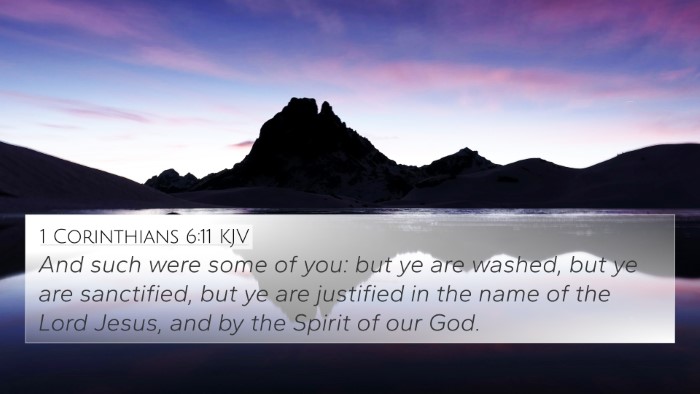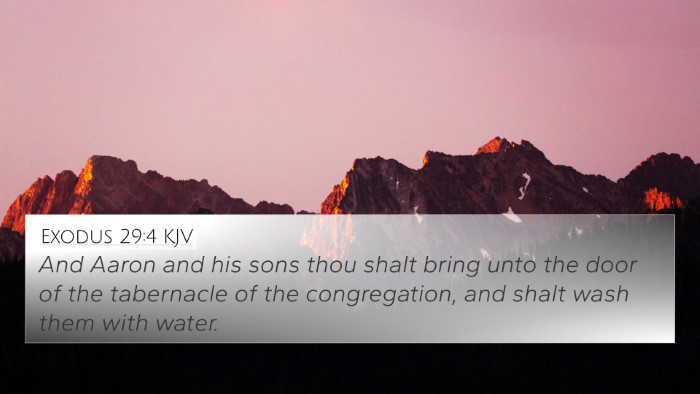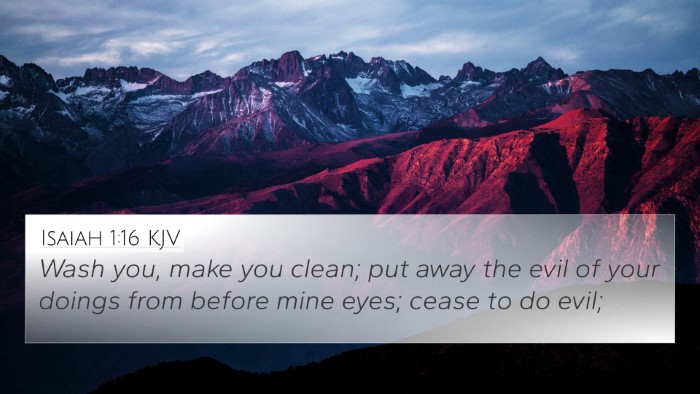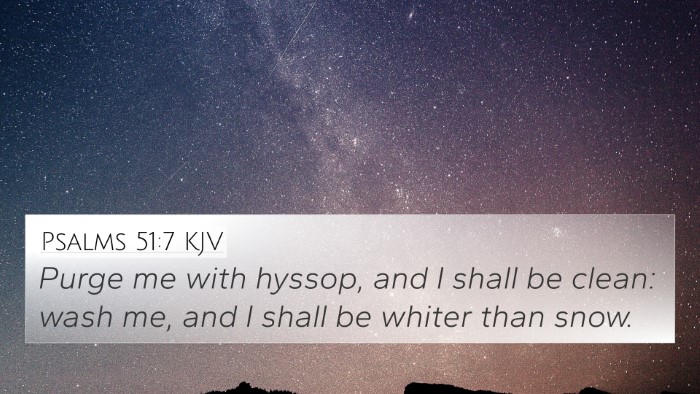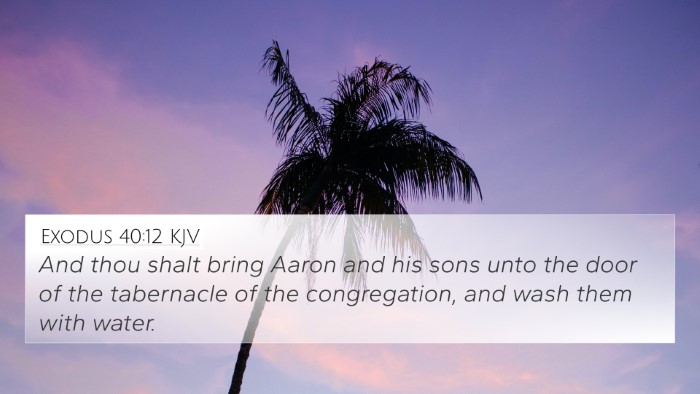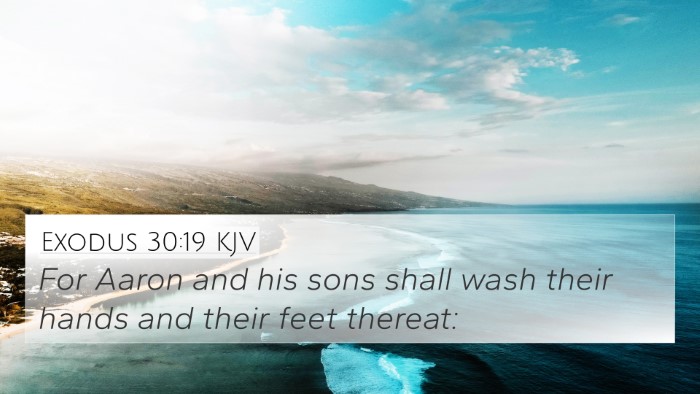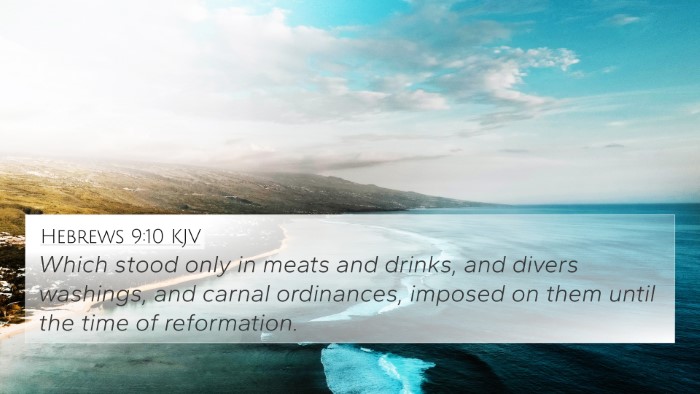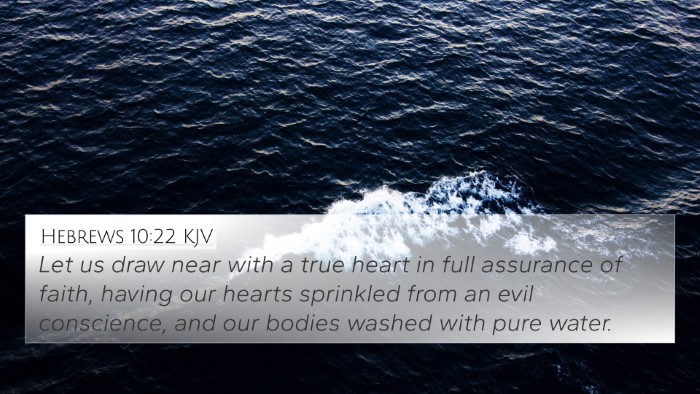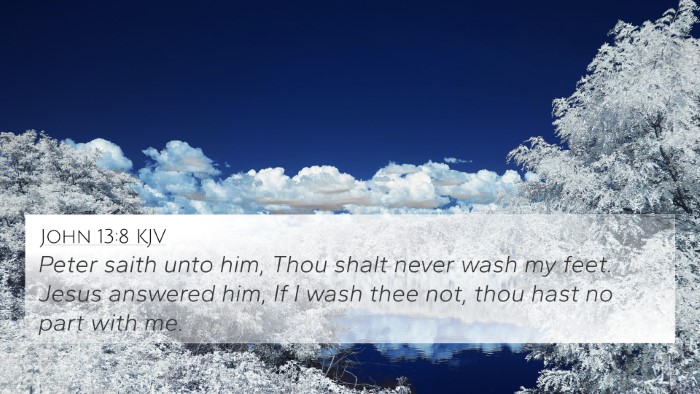Understanding Leviticus 8:6
Leviticus 8:6 states, "And Moses brought Aaron and his sons, and washed them with water." This significant verse marks the initiation of the priestly ordination of Aaron and his sons, serving as a vital directive for their consecration to God’s service.
Thematic Overview
The purpose of this verse extends beyond the ceremonial act itself; it represents a profound spiritual truth that underlines the necessity of purification and dedication in service to God. The washing of Aaron and his sons mirrors themes found throughout Scripture regarding cleanliness, preparation, and divine calling.
Commentary Insights
-
Matthew Henry's Commentary:
Henry emphasizes the importance of spiritual preparation before engaging in sacred duties. The act of washing is not only physical but symbolizes the inner cleansing required to serve God. This points to the necessity of purification that is echoed throughout the Bible (Psalm 51:2, John 15:3).
-
Albert Barnes' Notes:
Barnes expands on the significance of water in biblical rituals, noting that it represents the Word of God (Ephesians 5:26). This washing foreshadows the New Testament cleansing believers receive through faith in Christ (1 Peter 3:21).
-
Adam Clarke's Commentary:
Clarke draws attention to the formalities of ordination, highlighting how Moses acted under divine instruction. He reflects on the symbolism of washing as an essential step in entering into a covenant relationship with God, linking it to baptism in the New Testament (Acts 2:38).
Cross-References to Leviticus 8:6
The implications of Leviticus 8:6 resonate with numerous other passages in scripture, establishing a web of connections that enrich our understanding. Here are several notable cross-references:
- Exodus 29:4: Discusses the washing of Aaron and his sons as part of their consecration, highlighting the continuity of the purification theme.
- Numbers 8:6: Further emphasizes the concept of purification for service, making systematic connections between priestly duties.
- Hebrews 10:22: "Let us draw near with a true heart in full assurance of faith, with our hearts sprinkled clean from an evil conscience and our bodies washed with pure water," echoing the notion of spiritual washing.
- John 13:10: Jesus teaches Peter about the necessity of spiritual washing, signifying a deeper cleansing beyond physical rituals.
- Psalms 24:3-4: Describes who may stand in the holy place, highlighting the need for clean hands and a pure heart.
- 1 Timothy 6:12: Invites believers to fight the good fight of faith, indicating that preparation for Godly service requires purity of intent.
- Romans 12:1: Calls Christians to present their bodies as living sacrifices, which can be viewed as a form of spiritual washing.
Conclusion
Leviticus 8:6 encapsulates critical elements of ritualistic purity, preparation for service, and consecration to God. By linking this verse with others through cross-referencing Biblical texts, we achieve a richer understanding of God’s call and the necessary steps to respond to that call. This framework encourages further study and reflection, beckoning believers to explore the depths of scriptural teachings on purification, service, and divine appointment.
Tools for Bible Cross-Referencing
For deeper exploration of these connections, tools like a Bible concordance, cross-reference Bible study guides, and comprehensive Bible cross-reference materials can be indispensable. Understanding how to use these resources effectively aids in identifying connections between Old and New Testament verses and enhances our grasp of Biblical themes.
Encouragement for Further Study
Consider delving into a comparative study of Pauline epistles or exploring how various passages interrelate. By employing a Bible cross-reference system, one can unlock deeper meanings and apply them to daily life.

